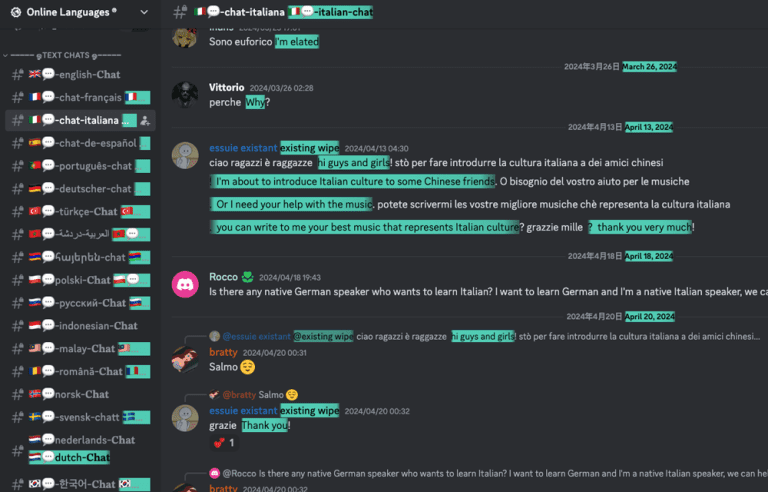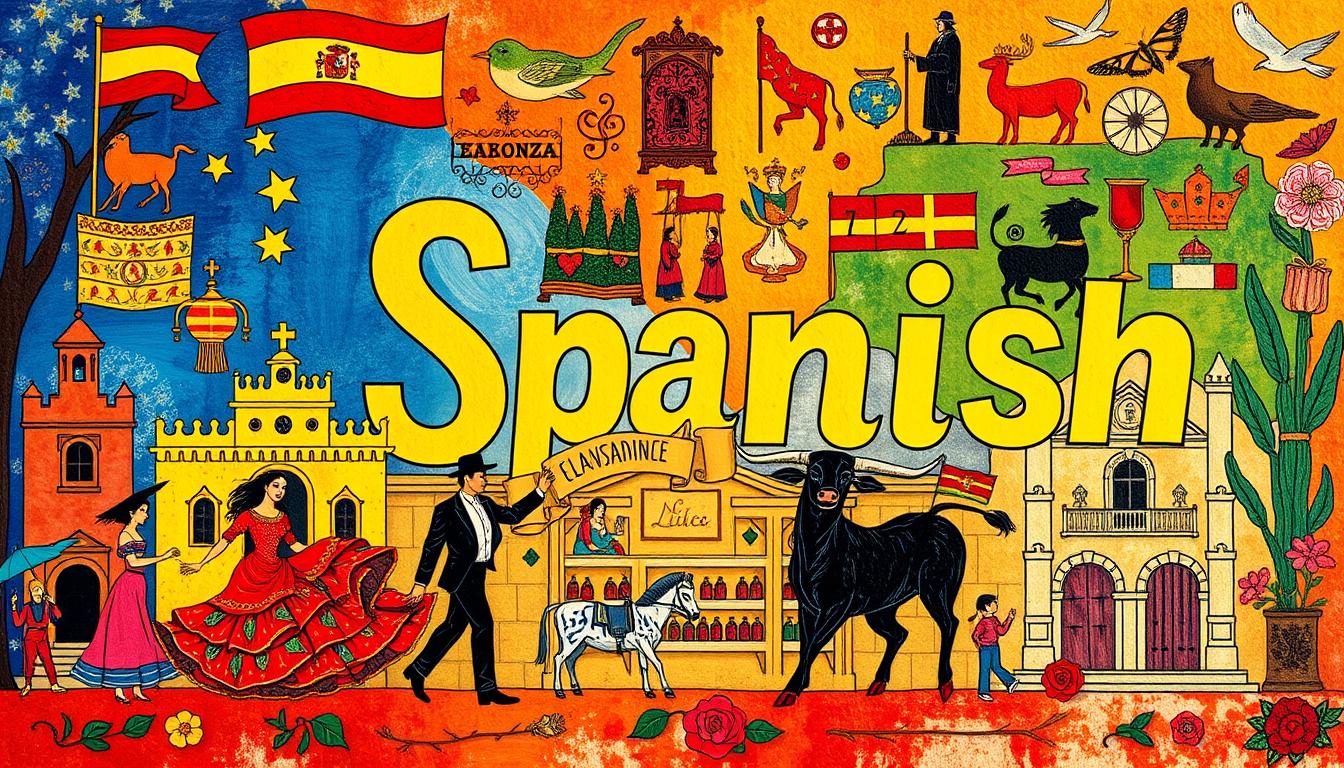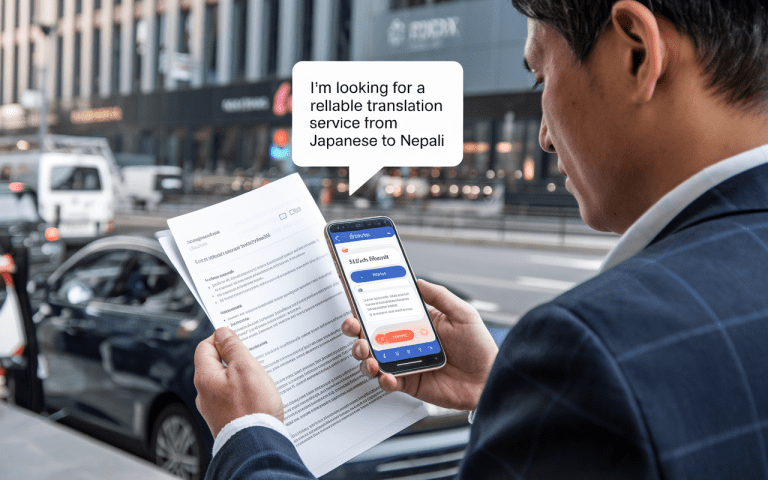Igbo Translation: Your Guide to Nigerian Languages
More businesses connect with Nigeria every day. Igbo, a major Nigerian language used by millions, needs quality translation support. As global trade grows, so does the demand for reliable Igbo translation services. How can you make sure your messages get across in these unique languages? Get ready to explore the world of Igbo translation and how it helps us understand Nigeria’s diverse languages.
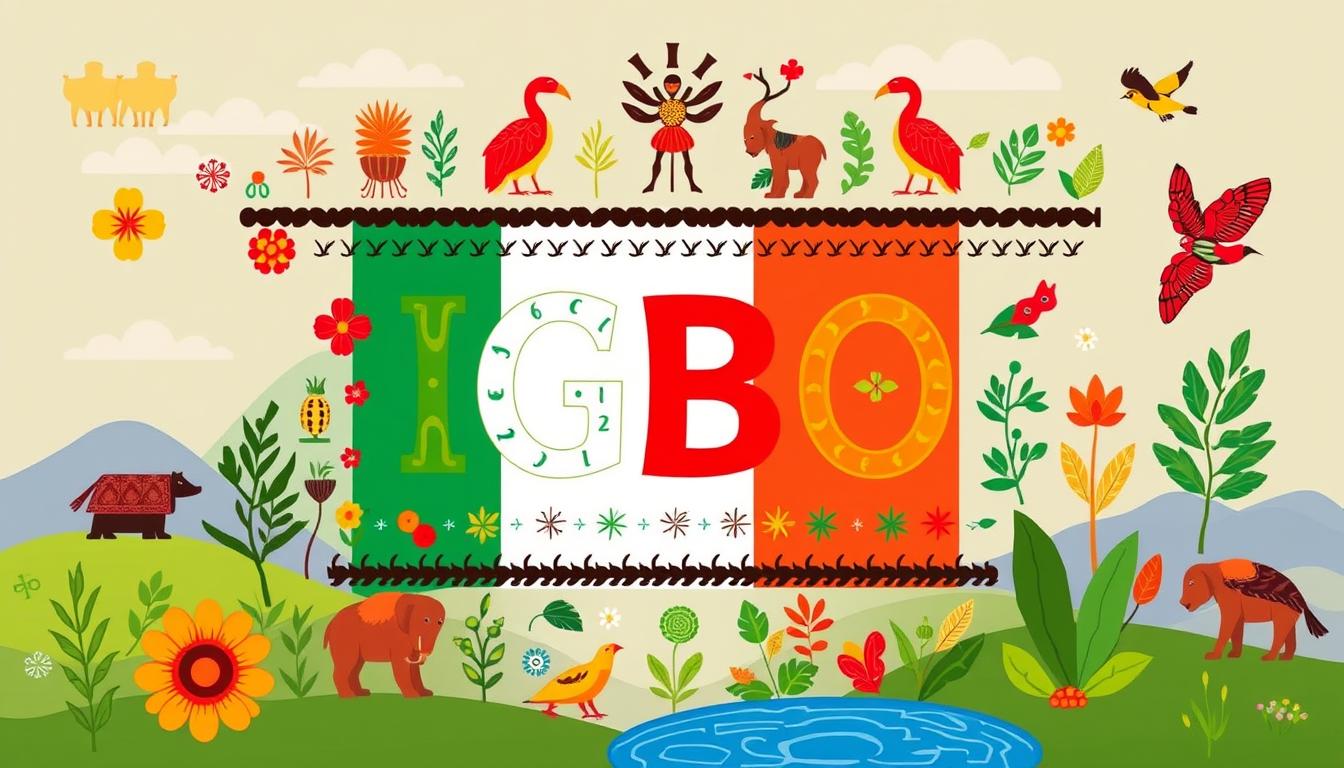
Key Takeaways
- Over 27 million people use Igbo daily, making it one of Nigeria’s key languages. Most Igbo speakers live in Nigeria’s eastern regions.
- Many American creole languages contain Igbo words, showing its lasting impact. The language carries deep Nigerian traditions passed down through generations.
- You can get Igbo translations both online and from real people.
- Igbo’s tones and grammar rules matter when translating. Good translators must know these basics to convert between Igbo and English correctly.
- Igbo changes from region to region. Knowing these local differences helps translators pick the right words and meanings.
Understanding the Igbo Language: Origins and Demographics
The Igbo language has a deep history in southeastern Nigeria. It is spoken by nearly 17% of Nigeria’s people. This makes the Igbo one of Africa’s largest ethnic groups.
Their language is more than just words. It’s a part of their vibrant culture that reaches far beyond their homeland.
Geographic Distribution and Speaker Population
Igbo is mainly spoken in Anambra, Abia, Imo, Ebonyi, and Enugu states. These states are at the heart of Igboland. But, Igbo speakers can also be found in Cameroon, Equatorial Guinea, and around the world.
Many big cities use Igbo daily. You’ll hear it in Onitsha’s markets, Aba’s streets, and throughout Owerri. People also speak Igbo in Enugu, Nnewi, Nsukka, Awka, Umuahia and Asaba.
Historical Development of Igbo Language
The Igbo people’s history spans thousands of years. Digs and ancient sites prove they built a strong culture long ago. There are different theories about where the Igbo came from, like the Amaigbo and Owere-Awka.
Before the British came, Igbo society was different. It was decentralized, with communities ruled by the people, not kings or chiefs.
Cultural Significance in Nigeria
The Igbo language is key in Nigerian literature. Writers such as Chinua Achebe told the world about Igbo life in their books. When the British came in the 1870s, it made Igbo people value their own ways even more.
This led to more interactions with other groups in Nigeria. The creation of Biafra in 1967 made the Igbo’s culture and language even more important.

“The Igbo language is not just a means of communication, but a reflection of the rich cultural heritage and resilience of the Igbo people.”
Igbo Translation: Essential Features and Characteristics
Igbo speaks in ways other languages don’t. Its special patterns and rules make it different from English and other Nigerian languages. In Nigeria, Igbo is known for its rich tones, complex grammar, and deep cultural roots.
Igbo’s tonal system is a key feature. It uses three tones – high, mid, and low – and also rising and falling tones. These tones help change the meaning of words, making Igbo to English translation and Igbo interpretation a delicate task.
Igbo is also agglutinative. This means affixes are added to words to show verb tenses and change meanings. This adds complexity, requiring a deep understanding for accurate Igbo to English translation and Igbo interpretation.
Igbo doesn’t have grammatical gender or number for nouns, unlike many other languages. It follows a subject-verb-object order, different from English’s subject-object-verb. These differences make translation between Igbo and English challenging.
Igbo pronunciation is rich due to vowel harmony and assimilation. Sounds of vowels and consonants affect each other. This complex system adds depth to the language, making it hard to master Igbo to English translation and Igbo interpretation.
Understanding Igbo’s features is key for accurate Igbo to English translation and Igbo interpretation. By grasping its nuances, translators and interpreters can connect cultures and facilitate communication.

Pronunciation and Tonal System in Igbo
Understanding Igbo pronunciation and its tonal system is key for accurate translation. Millions in southeast Nigeria speak Igbo every day. The way its words rise and fall in tone makes it special among local languages.
Vowel and Consonant Sounds
Igbo vowels are similar to English, but it also has nasal vowels. Its consonants are mostly like English, with unique sounds like ‘gb’ and ‘kp’. Learning these sounds is vital for fluent Igbo speaking.
Understanding Tonal Patterns
When speaking Igbo, words change meaning based on three tones – low, middle, and high pitches. These tones change word meanings, even with the same spelling. For instance, ‘akwa’ can mean ‘cloth,’ ‘egg,’ ‘cry,’ ‘bed,’ or ‘bridge,’ based on its tone.
| Tone Category | Examples |
|---|---|
| High Tone | ‘ísí’ (head), ‘ányá’ (eye), ‘úgwú’ (hill) |
| Mid Tone | ‘ụkā’ (sour), ‘éwī’ (rabbit), ‘mmérī’ (defeat) |
| Low Tone | ‘àlà’ (land), ‘àkwà’ (bed), ‘òkàrà’ (half) |
Common Pronunciation Challenges
Learning Igbo’s pitch patterns takes time. New speakers struggle to hear when sounds should go up, stay level, or drop down. This affects word meanings. Practicing tone discrimination is essential for improving Igbo speaking skills.
By grasping Igbo’s unique sounds and tones, interpreters and translators can improve. They can better serve Igbo-speaking communities.
Written Igbo: From Nsibidi to Modern Alphabet
The Igbo language is widely spoken in Nigeria and has a rich history of writing. The Igbo people first used the Nsibidi ideographic system, which started in the Cross River region around 400 AD. Nsibidi has hundreds of signs that were used for communication.
Later, the Roman alphabet was introduced during British colonialism. This led to the use of the ọ́nwụ́ orthography. The first Igbo book, an Ibo-Isuama primer, was published in the 19th century by Bishop Ajayi Crowther.
Now, modern Igbo writing uses diacritical marks to show the language’s tones and sounds. These marks are key for translating and understanding Igbo texts accurately.
Biread’s Bilingual Display and Learning Mode features are designed to support users in reading and understanding Igbo texts by offering clear, dual-language displays, making it easier to learn Igbo.
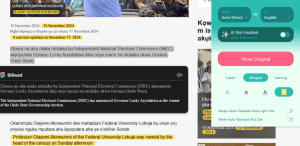
Grammar Structure and Language Rules
The Igbo language is rich and complex. It shows the depth and nuance of the language. Knowing Igbo grammar is key for accurate Igbo language translation and good communication in this Nigerian language.
Verb Conjugation and Tenses
Igbo verbs use prefixes and suffixes for tense and aspect. The present tense has a- or e- prefixes. Past actions use -tara or -tere suffixes. This system lets Igbo speakers show the timing and nature of actions clearly.
Noun Classification System
Igbo nouns don’t change form for plurality. Instead, Igbo uses special words for singular or plural. This system, with separable and inseparable pronouns, makes Igbo unique compared to English.
Sentence Structure and Word Order
Igbo sentences usually follow Subject-Object-Verb order. Adjectives come after the noun they describe. This can be tricky for Igbo English translation, but knowing it is key for fluency.
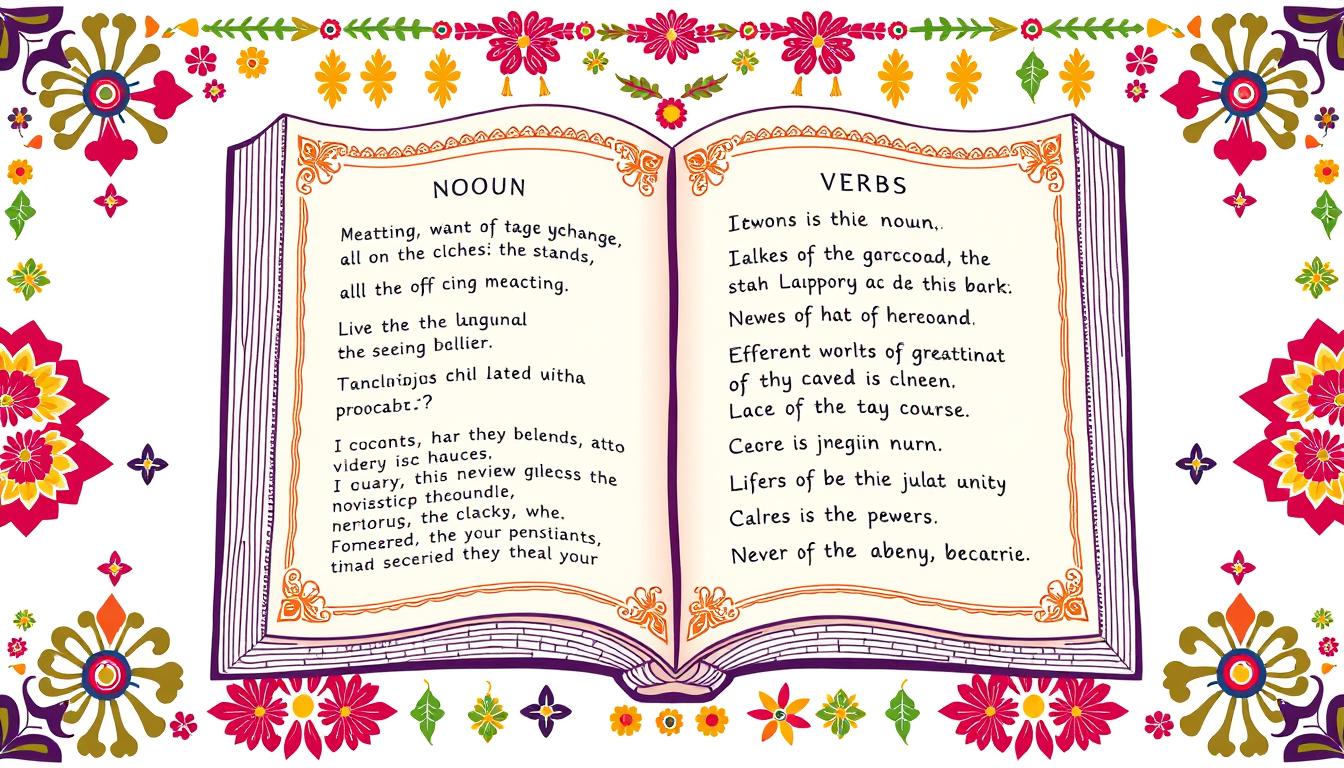
“The Igbo language is a testament to the creativity and nuance of human language, with a grammar structure that both fascinates and challenges learners.”
Learning Igbo grammar is rewarding for those who want to truly understand this vibrant Nigerian tongue. By exploring verb conjugation, noun classification, and sentence structure, we can unlock the full power of Igbo language translation.
Dialects and Regional Variations
The Igbo language is spoken by over 30 million people worldwide. It is known for its rich dialectical diversity. It is divided into Northern Igbo (NI) and Southern Igbo (SI). This division shows the variety of regional variations, which can sometimes make communication between speakers from different areas challenging.
The diversity of Igbo dialects presents both challenges and opportunities. While it can hinder mutual intelligibility, it also opens up new avenues for translators and language learners to engage with various Igbo communities.
Biread enhances Igbo translation by offering Bilingual Subtitles to clarify dialectical differences and improve comprehension, ensuring a more accurate translation for all users.
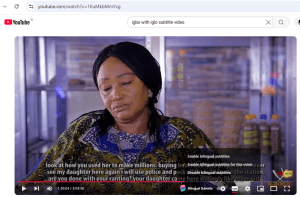
Conclusion
Igbo is a language with deep cultural roots, a rich tonal system, and an important place in Africa’s history. Understanding Igbo’s nuances, from its pronunciation to its grammar structure, is essential for effective Igbo translation. With the rise of Biread, tools are available to assist in navigating this complex language, making Igbo translation easier and more accessible.
Biread provides advanced translation features that cater to the needs of anyone interested in the Igbo language, ensuring that cultural heritage is preserved while making the language accessible to a global audience.
FAQ
What is Igbo and where is it spoken?
About 30-35 million people use Igbo in Nigeria today. It belongs to the Niger-Congo family of African languages. It’s also a national language of Nigeria and recognized in Equatorial Guinea.
What are the major Igbo-speaking regions and cities?
From the busy streets of Onitsha and Enugu to the markets of Owerri, Port Harcourt and Asaba, Igbo fills southeastern Nigeria’s Igboland. But Igbo voices reach far past Nigeria’s borders – into Equatorial Guinea, Cameroon, and countless Igbo communities worldwide.
What are the key features of the Igbo language?
The Igbo language works with tone changes to give words meaning. Words grow by adding parts that show when things happen. Nouns stay the same whether talking about one or many things, with sentences flowing in a subject-verb-object pattern.
How is Igbo written and what are the challenges in translation?
Igbo was once written with nsibidi ideographs. Now, it uses a Roman-script-based orthography called ọ́nwụ́. Accurate translation and interpretation need a deep understanding of its tonal system, dialects, and cultural context.
What are the key grammatical features of Igbo?
Igbo verbs use prefixes and suffixes for tense and aspect. In Igbo, words stay the same whether you mean one or many. Some pronouns stand alone while others attach to words. Describing words come after the things they describe.
How diverse are the Igbo dialects?
Igbo dialects are divided into Northern Igbo (NI) and Southern Igbo (SI), with regional variations. The diversity can make it hard for speakers from different regions to understand each other.
Source Links
- Igbo English Dictionary – https://www.igboguide.org/HT-vocabulary.htm
- The Igbo, sometimes (especially formerly) referred to as Ibo, are one of the largest single ethnicities in Africa – https://faculty.ucr.edu/~legneref/igbo/igbo2.htm
- Igbo Speech and Language Development | Bilinguistics – https://bilinguistics.com/languages/igbo-speech-and-language-development/
- Igbo Dialects and Igboid Languages – https://okwuid.com/2020/04/22/igbo-dialects/
- Empowering Igbo Language Technologies through Multi-dialectal Enrichment – https://arxiv.org/html/2405.00997v1
Unlock the power of Igbo translation and dive into rich cultural insights with Biread.
Start learning and connecting today—try Biread for free and experience seamless bilingual reading!
Try Biread Free



